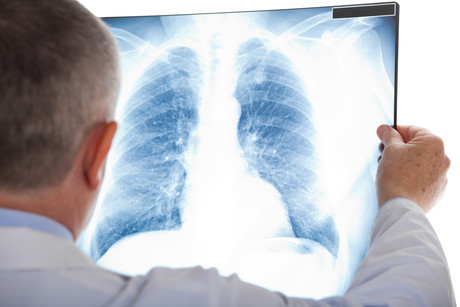Deadly pneumonia could be knocked out by this hormone

Researchers at the University of Virginia School of Medicine have found a hormone responsible for controlling iron metabolism helps fight off a severe form of bacterial pneumonia. The findings have been published online by the scientific journal JCI Insight. This discovery may offer a simple way to help vulnerable patients.
A key hormone, hepcidin, has been identified as being critical for preventing pneumonia bacteria from spreading throughout the body by starving it to death. Hepcidin is produced in the liver and limits the spread of the bacteria by hiding the iron in the blood that the bacteria need to survive and grow.
Stimulating hepcidin production in patients who do not produce it well, such as people with iron overload or liver disease, may help their bodies fight off infection. That finding could be lifesaving for these vulnerable patients, especially as pneumonia bacteria are growing increasingly resistant to antibiotics.
“The rate at which these organisms become resistant to antibiotics is far faster than the rate at which we come up with new antibiotics. It’s a race, and they’re winning it,” said researcher Borna Mehrad, MBBS, of UVA’s Division of Pulmonary and Critical Care Medicine.
“Increasingly, the choice of antibiotics to treat these infections is more and more limited, and there are occasions where there just isn’t an antibiotic to treat with, which is a very scary and dangerous situation,” Mehrad said.
There is already a drug in development that mimics the function of hepcidin and could be used to decrease the iron levels in the blood of pneumonia patients who lack hepcidin. That drug has been developed primarily to treat chronic iron overload but the new research may give it another, life-saving application.
“We think that short-term treatment with this drug should be an effective way of treating these [pneumonia] infections,” Mehrad said. “At least in mice, it seems to work extremely well,” Mehrad said.
Pathways to proof: could this transcranial treatment ease chronic pain?
Australian researchers have published a 'roadmap' to prove clinical efficacy for a...
REDFEB highlights the impacts of chronic stress on the heart
February is Heart Research Australia's heart disease awareness month, REDFEB, and the effects...
Patients co-design invasive heart surgery monitoring clinical trial
Patients and their families have co-designed a clinical trial to determine if invasive devices...


![[New Zealand] Transform from Security Awareness to a Security Culture: A Vital Shift for SMB Healthcare — Webinar](https://d1v1e13ebw3o15.cloudfront.net/data/89856/wfmedia_thumb/..jpg)
![[Australia] Transform from Security Awareness to a Security Culture: A Vital Shift for SMB Healthcare — Webinar](https://d1v1e13ebw3o15.cloudfront.net/data/89855/wfmedia_thumb/..jpg)




